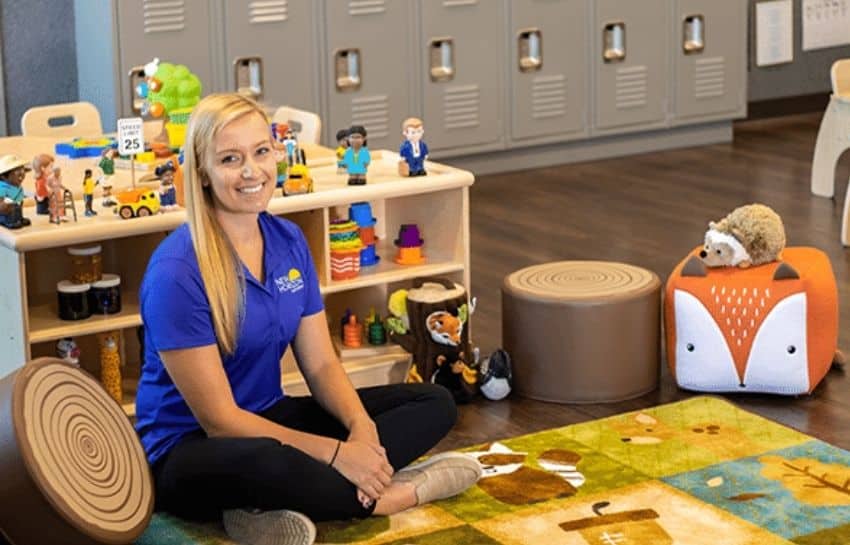Parenting Tips and Tricks from a Daycare Teacher

Have you ever wondered why your child’s daycare explains experiences with your child that do not sound like anything at home? There is a good reason why your child acts differently. Kids are less likely to push their boundaries at home. Also, they may hold onto their angst until they see you at the end of the day.
Daycare professionals get close and personal with tons of infants, toddlers, preschoolers, and school-agers. With that experience, teachers build skills and strategies that are a huge advantage over parents. Our teachers at New Horizon Academy share some of their best tips and tricks for managing the more challenging kids.
How do I build a routine?
Building a daily routine gives children a sense of security, which establishes confidence. For this reason, most daycares keep their routines as simple as possible. They have exact times for snacks, lunch, play, and naps every day.
If you work full time, it is tempting to do many activities outside the house on the weekend. But, minimizing the number of activities in your day or scheduling your weekend activities at the same time your child would be active in daycare will help solidify those routines. The lack of managing your child’s routine is the main reason kids fuss.
How do I stop the picky eating?
Many kids eat so well at daycare because they see all their classmates eating too. Countless studies have shown that children who eat with their families are more likely to experience long-term physical and mental health benefits. This comfortable environment helps the child immerse themselves in the eating experience and observe a wide range of foods, encouraging picky eaters to try new foods.
At daycare, whatever is provided is what they have to eat, no ifs, ands, or buts. No amount of whining will get them a different meal. If your child decides they do not like what is on their plate, let them know that is all that will be available for them to eat. Eventually, they will get used to the idea that what is on the dinner table is the only food offered. A bit of harsh parenting here.
How do I limit the whining?
Teachers cannot cater to every outburst or demand because there are many other little ones to care for in each classroom. Try to eat together at home as a family. At home, your kid may refuse to go to sleep with a book to read, a snack, a trip to the bathroom, or a cuddle session, but there is no way the teacher can do that. Resist the urge to cave into your child’s tantrums. You will be surprised to see how short the tantrums become when your kid realizes that it is no longer getting them what they want. Once your child calms down, you can explain that behavior is not acceptable, but it can be worked out in a healthier way.
Not all tantrums should be ignored since that may be your child’s only way of communicating. If that is the case, try to calm them down and figure out what is wrong. This helps the parent understand their child’s communication and helps the child develop self-awareness. Once you determine the factor of the tantrum, you can take action. It could be as simple as thirst, needing a nap, overstimulation, too hot, etc.
How do I stop the hitting and not sharing?
Daycare teachers try to model wanted behavior and use positive reinforcement to eliminate negative behavior. If your child tends to hit because of frustration, be sure to praise them when you catch them asking nicely to take a turn, sharing, or showing empathy toward a sibling.
All parents have been in this situation. Your child steals a toy from another kid without asking, and the other kids start to cry. As a parent, you ask your child to apologize. But, because it is simply a learned response, saying “sorry” does not quite register with little kids, so it will not prevent the behavior from happening again. Have the two children ask if the other kid is okay, how it made them feel, and what steps to take to make things better. Sometimes all it takes is a hug, but it is an essential step toward learning about empathy and accountability.
We know there are many challenges regarding parenting and endless questioning. Trust us, we know there are many more questions, and this Q & A is just the tip of the iceberg, but we hope this information from our teachers who have years of experience caring for children has helped you with similar questions. If you have more questions you would like our teachers to help answer, please comment!



